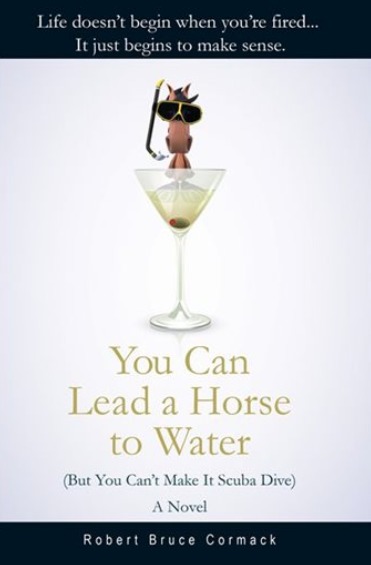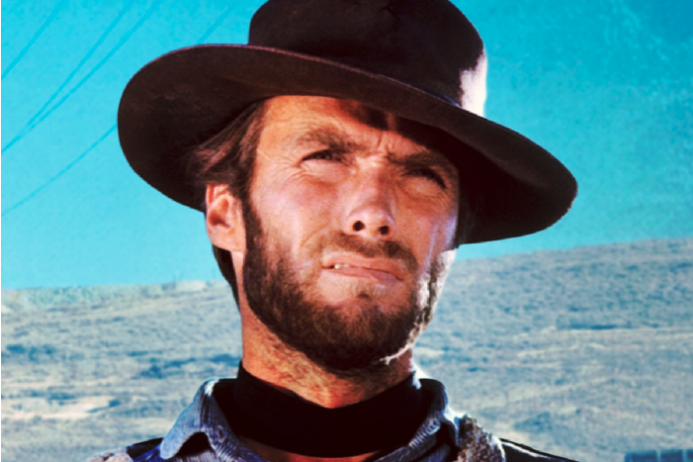Leaving Words Out.
Editing is every bit as important as what a legendary jazz musician leaves out of a song. "Never give them everything," Miles Davis once said.

“Editing stops me from being preposterously stupid.” Stephen Hopkins
This isn’t about losing weight or getting rid of the clutter. This is about words. I can’t tell you how many words I’ve written in my career. What does 45 years add up to? I haven’t the slightest idea. And I don’t care.
People keep asking, “How many words do you write each day?” It’s like asking how many times you’ve been kissed. The number means nothing. Some are good, some are bad, some are nothing more than a touching of lips. We only remember the kiss that stays in our minds. The same applies to words.
Dizzy Gillespie once told a young trumpet player, “It isn’t what you play, it’s what you leave out.”
If people don’t remember our words, we’ve written too much. I know Hemingway said, “You learn to write by writing.” He wasn’t talking about volume. He was talking about distillation. From the many, we value the few.
“Minarets stuck up in the rain out of Adrianople across the mud flats. The carts were jammed for thirty miles along the Karagatch road. Water buffalo and cattle were hauling carts through the mud. No end and no beginning.”
Dizzy Gillespie once told a young trumpet player, “It isn’t what you play, it’s what you leave out.” It’s the pause that sticks in people’s minds, the distance between notes. Silence can say many things.
Miles Davis said he never gave everything in a performance. Notes were too important.
Have you ever been out in the country at night? You see thousands of stars and say, “Why don’t I see these in the city?” You listen to the silence, the sound of chirping, the breeze. You say, “Why don’t I hear this in the city?”
You don’t because of noise, vibration, light reflection. This is the clutter of civilization. They work their way into everything in our lives, our writing, our music, the shows we watch on television.
Gillespie — and all great jazz players — believed in the importance of notes. Miles Davis said he never gave everything in a performance. Notes were too important. What we got was a distillation of years, what Davis decided we needed to hear.
Rushdie once said in a speech that a friend convinced him to go into advertising because it “was easy.” He soon discovered it wasn’t.
To him, the rest was immaterial, nothing but noise, vibration and lights. Only years of playing taught Davis what to leave out. How many notes? Millions? Billions? The number isn’t important. What he left out is all that matters.
I spent years distilling words for a living. I’d take hundreds of clinicals, turning them into a few hundred words. It was brevity for money. Along the way, I learned what many writers — including F. Scott Fitzgerald and Salman Rushdie — realized about copywriting: the economy of words.
Rushdie once said in a speech that a friend convinced him to go into advertising because it “was easy.” He soon discovered it wasn’t. When it’s a job with deadlines, with a client expecting something good, words don’t come as fast as you’d like. But you learn what it means to write, to reduce words, and know which ones sell.
When Raymond Carver presented his manuscript “What We Talk About When We Talk About Love,” to his editor, Gordon Lish, Lish reduced it by forty percent and rewrote six of the endings.
“I wrote for Chevrolet,” Elmore Leonard once said. “Advertising’s hard because you’re confined to such a small space. It’s nothing like novel writing. There you can let your mind wander and words flow. Advertising is sticking to script. You can’t go off in different directions. You have to be very clear.”
When Raymond Carver presented his manuscript “What We Talk About When We Talk About Love,” to his editor, Gordon Lish, Lish reduced it by forty percent and rewrote six of the endings. Carver went along and the book was — and is — a masterpiece.
Years later, under the influence of friends and other authors, Carver sent Lish a letter: “I have always respected your opinion, but please, please don’t edit my work so much.” Lish sent back his reply: “So be it.”
That ended their association. While Carver would create some superior stories, like “Where I’m Calling From,” he also published a collection of his stories in their original form, before Lish edited. For the most part, they’re too explanatory, too rambling. He’d put back what he should have left out.
“What We Talk About When We Talk About Love” will always be Carver’s definitive work in my mind. To compare it to jazz, it had the space, the singular words that spoke millions of things.
“Gazebo” alone says more in its six pages than entire novels.
“That morning she pours Teacher’s over my belly and licks it off. That afternoon she tries to jump out the window.”
Someone once described Charles Bukowski’s manuscripts as “typewriter keys practically going through the page.” He wasn’t writing to edit. His words were already edited in his mind. If there’s economy, it’s a writer trained in his own form of reduction, a voice saying, “I’ll give you what I want to give you.”
“Robert’s first desire — when he began thinking of such things — was to sneak into the Wax Museum some night and make love to the wax ladies. However, that seemed too dangerous. He limited himself to making love to statues and mannequins in his sex fantasies and lived in his fantasy world.”
Before you say, all you’ve given me are men writing like men. What about women in advertising, or women writing in general? Haven’t they given us what you call “distillation of words”?
Like everything she wrote, Mary Wells Lawrence never left a word out of place or a thought too loosely described.
This is from Mary Wells Lawrence, one of the greatest copywriters of her generation. Besides forming Wells, Rich and Greene, and creating the famous “I [love] New York” campaign, she wrote an autobiography that shows she’s still capable — at 83, no less — of clear, picturesque writing that respects the word and the “silences.”
“I was working at McCann-Erickson for the money, for the little black dresses that showed off my Norwegian legs, for my baby daughters’ smocked dresses from Saks, and for an apartment larger than I could afford, but then I met Bill Bernbach, and he made a serious woman out of me.”
Like everything she wrote, Mary Wells Lawrence never left a word out of place or a thought too loosely described. To me, she’s the epitome of the term “I meant every word I said.”
No writer of this or any other generation could champion the thoughts of so many in such a terse remembrance of a man we referred to as “Tricky Dicky.”
Like her, we should mean every word we say. Why add to the massive tonnage of what’s already out there? When I said that Miles Davis only “gave us the notes we needed to hear,” I meant that as a calling. Every jazz musician, every writer of any note, has taken their craft as a calling. It was never to show how many words you could write. It was to show how many words you could make count.
I’ll leave you with my favourite eulogy, a piece Hunter S. Thompson wrote for Rolling Stone on the death of U.S. President Richard M. Nixon. No writer of this or any other generation could champion the thoughts of so many in such a terse remembrance of a man we referred to as “Tricky Dicky.”
“Richard Nixon is gone now, and I’m the poorer for it. He was the real thing — a political monster straight out of Grendel and a very dangerous enemy. He could shake your hand and stab you in the back at the same time. He lied to his friends and betrayed the trust of his family. Not even Gerald Ford, the unhappy president who pardoned Nixon and kept him out of prison, was immune to the evil fallout.”
Robert Cormack is a freelance copywriter, novelist and blogger. His first novel “You Can Lead a Horse to Water (But You Can’t Make It Scuba Dive)” is available online and at most major bookstores. Check out Yucca Publishing or Skyhorse Press for more details. Coming soon, my collection of short stories “Would You Mind Not Talking to Me?” I’ll keep you posted.

""
Articles from Robert Cormack
View blog
Is “Succession” explaining Russia's leader better than the media? · “In modern war, you will die lik ...

This world is getting very stupid and we might die wondering if this was the plan. · “Life is like a ...

The Clint Eastwood School of Writing. · “Hard writing makes easy reading. Easy writing makes hard re ...
Related professionals
You may be interested in these jobs
-
construction worker
Found in: Talent CA 2 C2 - 1 week ago
Complete Concrete Solutions Ltd. Dartmouth, CanadaEducation: · Expérience: · Education · No degree, certificate or diploma · Work site environment · Outdoors · Work setting · Construction site · Tasks · Load, unload and transport construction materials · Erect and dismantle concrete forms, scaffolding, ramps, catwalks shoring ...
-
Commis aux ventes
Found in: Appcast CA C2 A - 2 days ago
BrandSafway Québec, QC, CanadaChef de file des services spécialisés sur les marchés mondiaux de l'industrie, du commerce et des infrastructures, BranSafway fournit des systèmes d'accès et d'échafaudage, de coffrage et d'étayage, des services industriels et des solutions connexes à plus de clients dans le mond ...
-

Investment Advisor
Found in: Talent CA C2 - 3 weeks ago
Royal Bank of Canada NANAIMO, Canada Full timeJob Summary · Job Description · Grow your business, your way – with RBC · As an Investment Advisor at RBC Dominion Securities, you can help your clients reach their goals, while we help you reach yours. Maybe you've dreamed of starting your own business, but haven't had the train ...


Comments
Robert Cormack
6 years ago #6
Robert Cormack
6 years ago #5
Yes, almost used Leonard's quote, Gert Scholtz. Taking out what people skip is actually quite a skill. Works, though.
Robert Cormack
6 years ago #4
Gert Scholtz
6 years ago #3
Lisa Vanderburg
6 years ago #2
Lisa Vanderburg
6 years ago #1